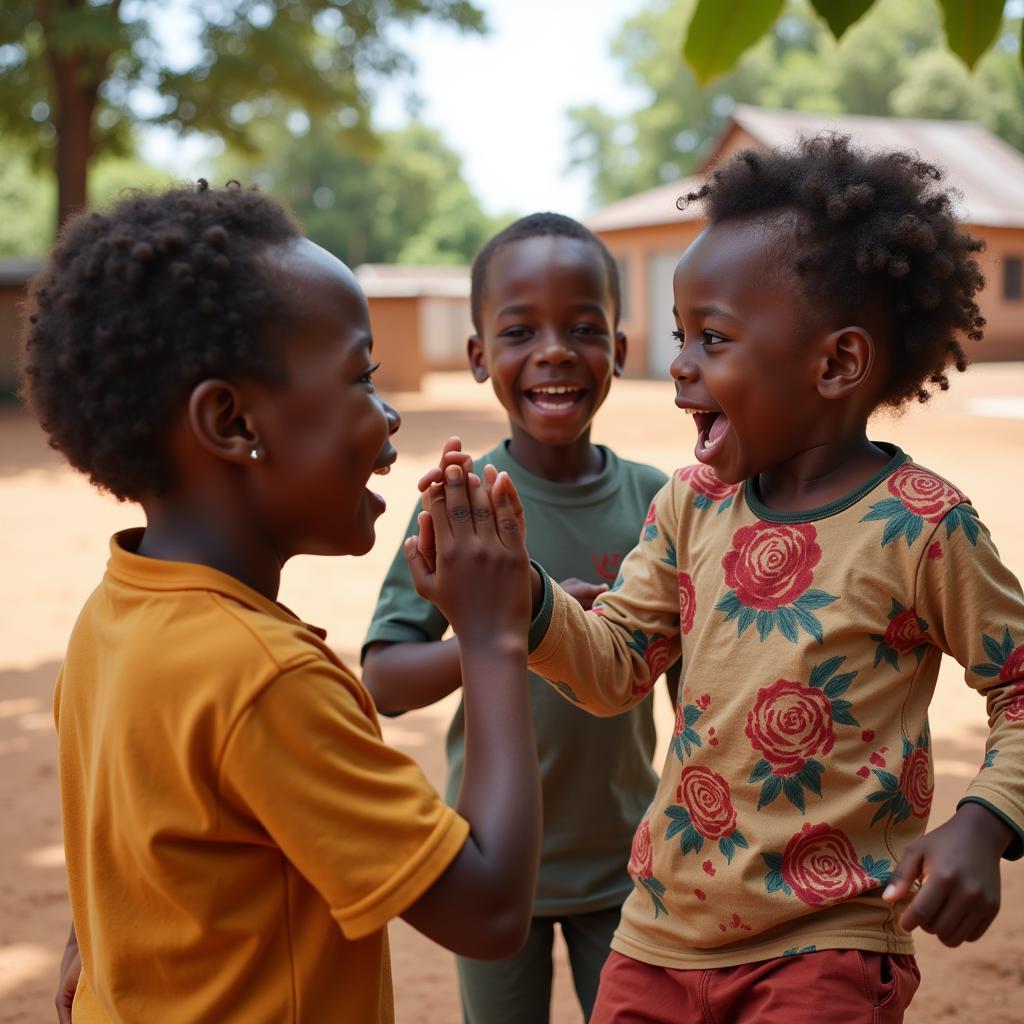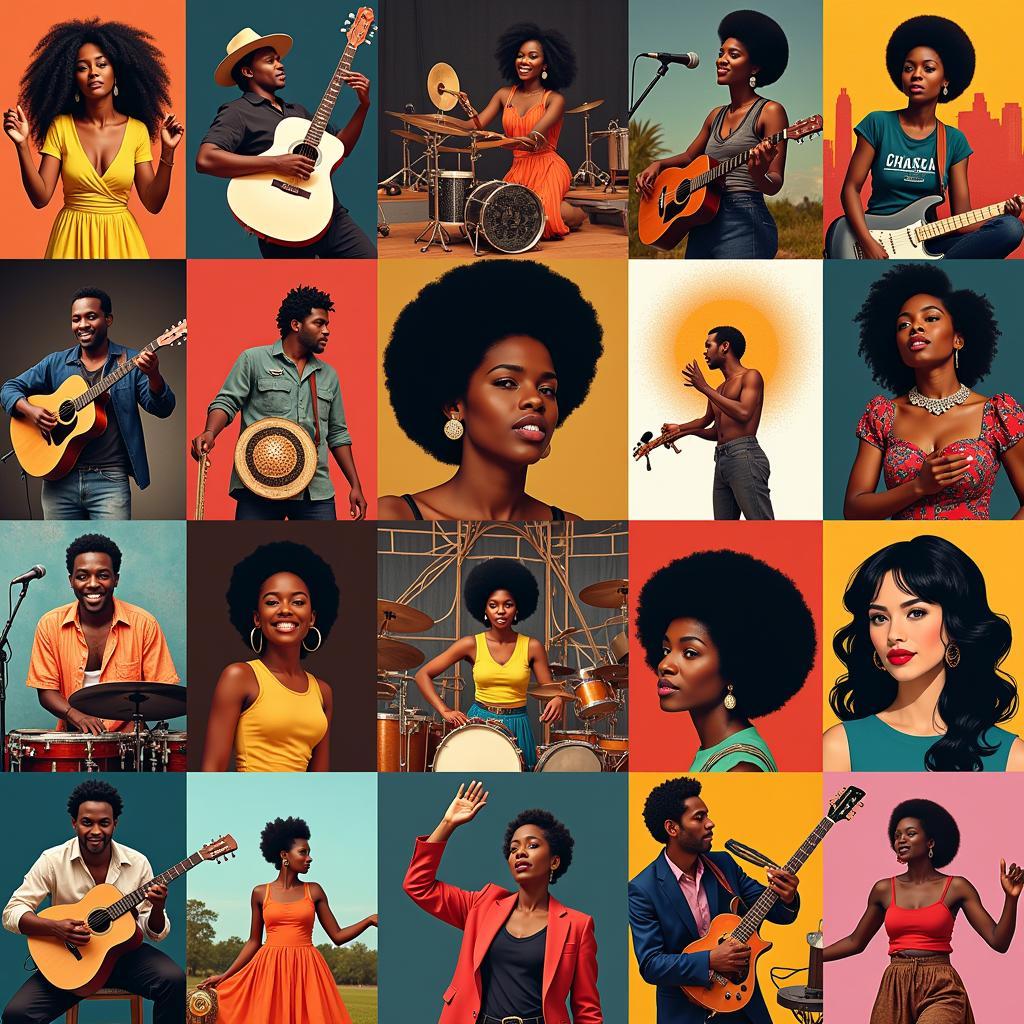Understanding the Challenges of African Deaf and Dumb Children
African Deaf And Dumb Children face unique challenges navigating a world often not designed for their specific needs. These challenges are compounded by societal stigmas, limited access to specialized education, and healthcare disparities often prevalent across the continent. Understanding these obstacles is the first step towards creating a more inclusive and supportive environment for these children.
Education and Communication Barriers for African Deaf and Dumb Children
One of the most significant hurdles is access to education. Many African countries lack adequate resources and trained professionals to provide specialized education for deaf and dumb children. This can lead to social isolation and limited opportunities for personal development. Communication barriers also pose significant difficulties. Without access to sign language instruction or other alternative communication methods, these children struggle to express their needs and connect with the world around them. This lack of communication can affect their emotional well-being and limit their participation in social activities.
Healthcare Disparities Affecting African Deaf and Dumb Children
Healthcare is another area where disparities are evident. Many deaf and dumb children in Africa lack access to basic healthcare services, including preventative care and early intervention programs. Early diagnosis and intervention are crucial for maximizing a child’s potential, but these services are often unavailable or inaccessible in many parts of the continent. Additionally, there’s often a lack of awareness and understanding amongst healthcare professionals about the specific needs of deaf and dumb children, leading to inadequate care and missed opportunities for intervention.
Sociocultural Stigmas Surrounding Deafness and Dumbness in Africa
In many African communities, deafness and dumbness are often stigmatized and misunderstood. This can lead to social exclusion, discrimination, and limited opportunities for these children. Traditional beliefs and cultural practices can sometimes exacerbate these negative perceptions, further isolating these children and their families. Overcoming these deeply ingrained societal stigmas is essential for creating a more inclusive and supportive environment. Education and awareness campaigns are crucial for challenging these misconceptions and promoting acceptance and understanding.
Breaking Down Barriers: Empowering African Deaf and Dumb Children
Despite the challenges, there are organizations and individuals working tirelessly to improve the lives of African deaf and dumb children. These efforts focus on providing access to quality education, healthcare, and support services. Empowering families with the knowledge and resources they need to advocate for their children is also critical. By working collaboratively and addressing these challenges head-on, we can create a more equitable and inclusive future for these children.
 African Deaf Children Playing Together
African Deaf Children Playing Together
What are the main challenges faced by deaf and dumb children in Africa?
Access to specialized education, healthcare disparities, and sociocultural stigmas are the primary challenges.
How can we improve access to education for these children?
Investing in teacher training, developing specialized curricula, and creating more inclusive learning environments are key steps.
What role do cultural beliefs play in the lives of African deaf and dumb children?
Cultural beliefs can sometimes contribute to stigmatization and social exclusion, making it crucial to address these issues through education and awareness campaigns.
Conclusion
African deaf and dumb children deserve the same opportunities as any other child. By addressing the challenges of access to education, healthcare, and overcoming societal stigmas, we can empower these children to reach their full potential. Supporting organizations working on the ground and advocating for policy changes are crucial steps towards creating a more inclusive and equitable future for African deaf and dumb children.
FAQ
- What are the primary barriers to education for deaf and dumb children in Africa? (Limited resources, lack of trained teachers, and inadequate infrastructure.)
- How do communication barriers impact the lives of these children? (They affect social interaction, emotional well-being, and access to information.)
- What are the healthcare disparities faced by African deaf and dumb children? (Limited access to basic healthcare, lack of early intervention programs, and lack of awareness amongst healthcare professionals.)
- How can we combat the societal stigmas surrounding deafness and dumbness in Africa? (Through education and awareness campaigns, promoting inclusivity, and challenging traditional beliefs.)
- What are some organizations working to improve the lives of African deaf and dumb children? (While I can’t mention specific organizations due to constraints, there are numerous local and international NGOs dedicated to this cause. Researching “deaf education in Africa” or “disability rights in Africa” will provide helpful resources.)
- What are some long-term solutions for empowering these children? (Investing in sustainable educational programs, improving healthcare infrastructure, and promoting inclusive policies.)
- How can individuals contribute to creating a more supportive environment for African deaf and dumb children? (By supporting relevant organizations, raising awareness, and advocating for policy changes.)
Need help or want to learn more? Contact us! Phone: +255768904061, Email: [email protected] or visit us at Mbarali DC Mawindi, Kangaga, Tanzania. We offer 24/7 customer support.

